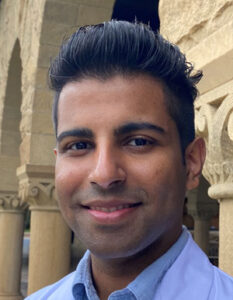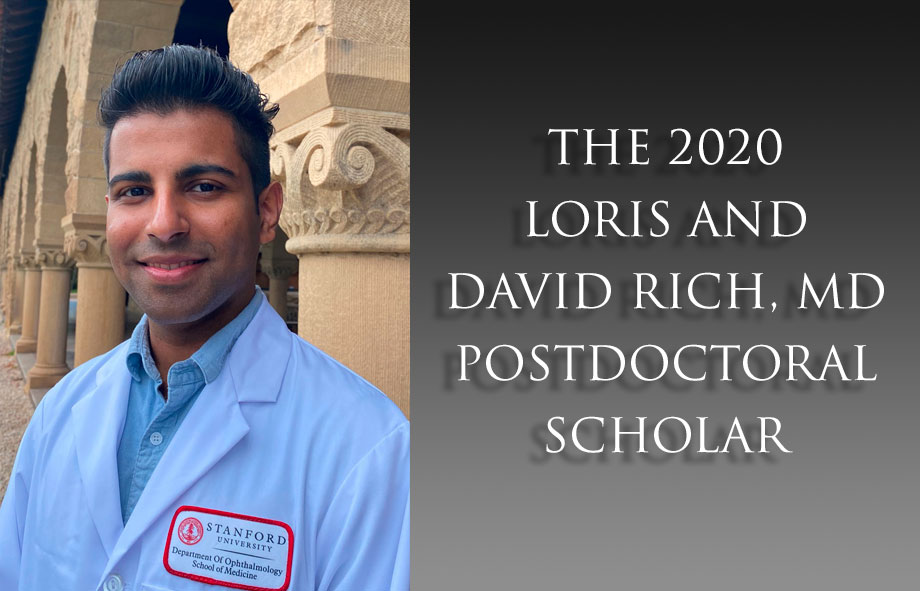
PROJECT TITLE: Electro-neural interface with single-cell resolution for the restoration of sight in Age Related Macular Degeneration
Dr. Bhuckory received his BSc with honors in Applied Biomedical Sciences from the Scottish University of Abertay Dundee, UK, after moving from Mauritius. He completed his PhD graduae work in Northern Ireland at Queen’s University, Belfast, UK, where he trained in ocular science at the Center for Experimental Medicine. He is currently receiving his postdoctoral training at Stanford University in California, USA, where he joined Daniel Palanker’s lab in 2018. His work includes laser therapies, biological and electronic approaches to the restoration of sight. “Being part of the Palanker lab has given me the opportunity to work in one of the most diverse settings. Daily interactions and problem-solving alongside the top experts in physics, applied physics, electrical engineering, material science, medicine and biology has given me the unique ability to bridge the gap between all those disciplines for the betterment of patient visual outcome,” says Bhuckory.
Through strong research training programs, he has developed a broad range of expertise in the field of retinal physiology, laser therapies, in vivo and ex vivo analysis of visual function, and is particularly interested in electronic and biological approaches to restoration of sight after retinal and RPE (retinal pigment epithelium) degeneration. During the past few years, Dr. Bhuckory has developed and improved surgical techniques for subretinal implantation in several animal species and optoelectronic setups for assessment of prosthetic and natural visual functions.
As the International Retinal Research Foundation Rich Scholar, Dr. Bhuckory will work on the restoration of vision using retinal prosthesis. “Our recent clinical trial success has been a critical proof of concept. The IRRF award will allow me to further our research in the next generation of retinal implants to achieve single-cell resolution, and thus closely matching natural vision,” added Dr. Bhuckory.
